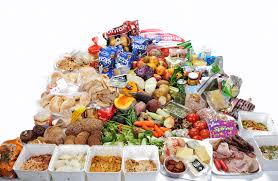Numerous useful chemicals and fuel can be extracted from food waste - study

- Country:
- United States
Wasted food can be affordably turned into a clean substitute for fossil fuels, say scientists who used natural fermentation to produce a biodegradable chemical that can be refined as a source of energy. The chemical could also be used to replace petroleum-based chemicals in a host of products including drugs and plastic packaging.
"People like me, environmental biotechnologists, look at food waste as a tremendous resource," said Hyung-Sool Lee, an engineering professor at the University of Waterloo in Canada. "With the right technologies, we can extract numerous useful chemicals and fuel from it," said Lee. Wasted food account for a worldwide economic loss of an estimated USD 1.3 trillion every year. Most of that discarded food goes into landfills, researchers said. Technology already exists to reduce the environmental impact by diverting food waste, collecting methane gas as it is broken down by microorganisms and burning the gas to produce electricity.
However, Lee said that the system -- known as anaerobic digestion --ultimately yields little or no net benefits when the high costs of food waste mixing and wastewater treatment are taken into account. The technology dramatically cuts those costs by collecting and recirculating leachate -- a microbial cocktail mixed with microorganisms and nutrients -- that trickles through the food waste in holding tanks, rather than stimulating biodegradation by intensive mixing.
As they eat and digest food waste, the microorganisms in those tanks also spit out a chemical byproduct called carboxylate, which has numerous potential uses as a substitute for petroleum, or crude oil. "The amount of food we waste is staggering. That's what motivated me to find a better way to utilise it to mitigate the damage caused by fossil fuels," said Lee.
In addition to being cheaper and more productive than existing technology, he said, the system is designed for use on small and medium scales. "Even small towns could have their own systems. Food waste collected in green bin programmes wouldn't have to be transported long distances to enormous, centralised facilities," said Lee. The next step in the research involves testing the technology on a larger scale, with a long-term goal to commercialise it within four to five years.
(With inputs from agencies.)
ALSO READ
Canada wants full probe into killing of aid workers in Gaza, protests to Israel envoy
Canada's spy agency claims India tried to interfere in 2019, 2021 elections
Canada pledges to spend more on defense; US applauds move
Total solar eclipse exits Canada after cutting across North America, reports AP.
Weather is the hot topic as eclipse spectators stake out their spots in US, Mexico and Canada










